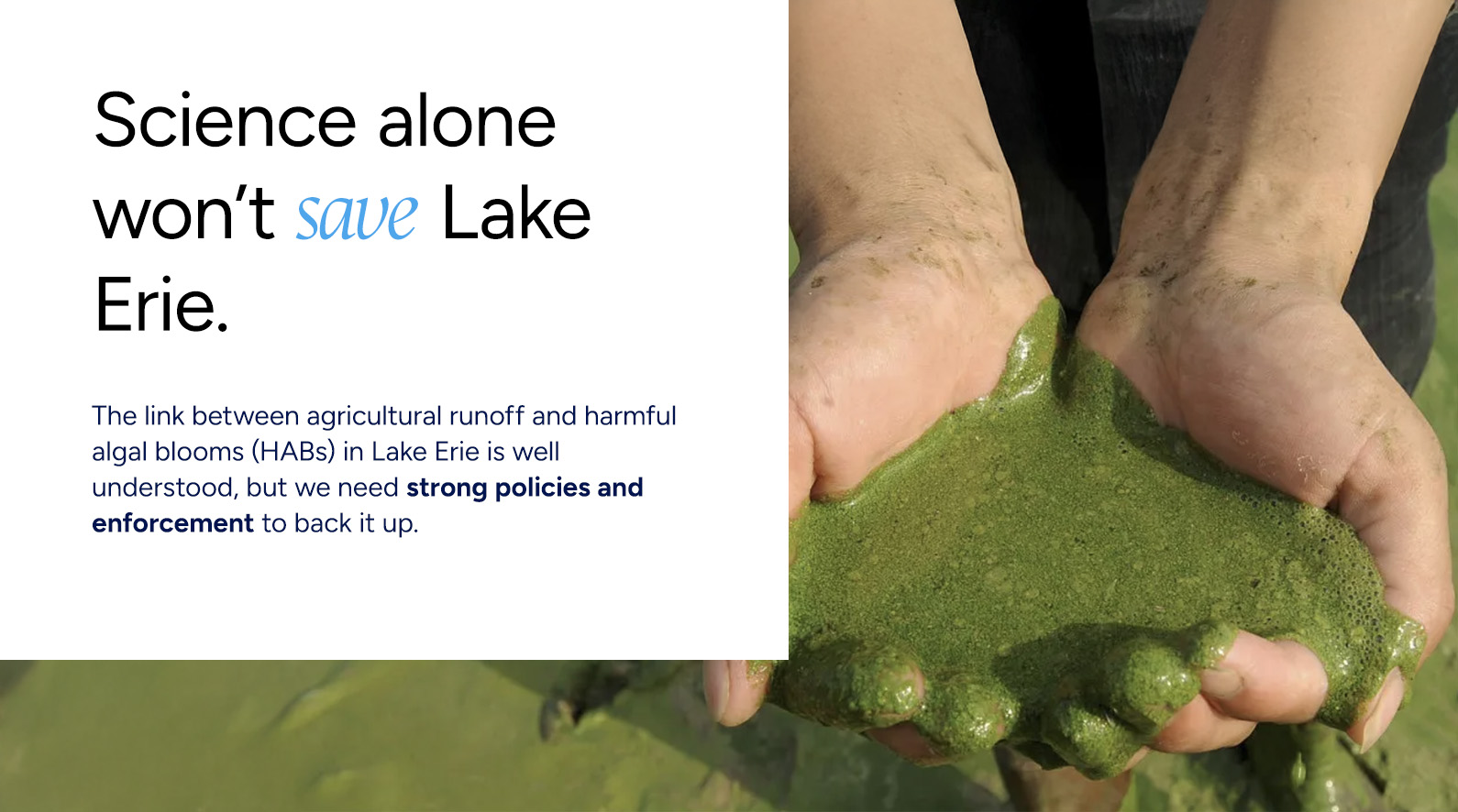
Facing facts and moving forward: Notes from the 2025 State of the Western Lake Erie Basin Conference.
On June 26, the State of the Western Lake Erie Basin (WLEB) conference, hosted by Michigan’s Department of Environment, Great Lakes, and Energy (EGLE), brought together researchers, agency staff, and community advocates working in one of Michigan’s most heavily farmed—and heavily polluted—regions.
The focus was on advancements and priorities in the WLEB, especially efforts to tackle harmful algal blooms (HABs). Highlighted tracks included:
- Implementation Science in Agricultural Systems: Potentials for and Assessments of Innovative Behavior Change Interventions
- Healthy Soils, Healthy Waters: Understanding Links Between Soil Health and Water Quality on Farms in the Western Lake Erie Basin
- and Understanding Legacy Phosphorus in the Western Lake Erie Basin.
A common theme ran through all sessions: the problem is well understood—now is the time to implement real solutions to reduce pollution.
Agricultural runoff is the main issue.
EGLE made it clear that the biggest threat to the WLEB is non-point source pollution, particularly runoff from agricultural sources. That aligns with what they’ve stated in their MI Environment article about harmful algal blooms (HABs). The article explains, “In May, the State of Michigan updated its Domestic Action Plan (DAP) for combating harmful algal blooms (HABs). The plan contains measures to reduce phosphorus runoff by a sustained 40% from a 2008 baseline measurement by targeting nutrient-rich releases from wastewater treatment plants and phosphorus runoff from farm fields and fertilized lawns.”
Presenters reiterated throughout the day that this problem isn’t new and it’s not only about current practices. Decades of fertilizer use have left legacy phosphorus in soils and sediments. Addressing these long-term consequences is critical to building effective, lasting solutions and achieving sustainable land management.
People are trying new things.
Despite the challenges, there were some encouraging updates. One session focused on using behavioral science—not just facts and figures—to help understand how farmers make decisions. Findings show that simply providing more information doesn’t always lead to action; real change requires meeting people where they are.
Another panel showed how improving soil health can also help reduce runoff. However, even with these promising tools, a major theme emerged again: none of it will scale up without stronger policies to support it.
Policy support is the missing piece.
A major challenge is the damage resulting from environmental rollbacks. During the Trump administration in 2020, agencies like the EPA and USDA weakened review processes, referring to it as “permitting reform.” In truth, these changes limited public input and undermined environmental protections. Fact sheets from that time detailed reduced deadlines and page counts—presented as cutting red tape—but in practice, these reforms made it easier for large-scale projects, including agricultural operations, to bypass environmental scrutiny. That’s a serious concern in regions like Western Lake Erie.
Science alone won’t save the lake.
The conference underscored a key takeaway: science alone isn’t enough to solve nutrient pollution. Policies rooted in strong science—and the enforcement to support them—are essential. Otherwise, even the best ideas remain stuck in pilot programs.
The case of the Western Lake Erie Basin shows what happens when known problems go unaddressed—but also what’s possible when land use and water protection are treated as urgent, interdependent priorities.
At Flow Water Advocates, the work continues to advocate for policies that protect Michigan’s water and communities. Clean water depends on effective protections—and real accountability—when it comes to farming, development, and pollution.

